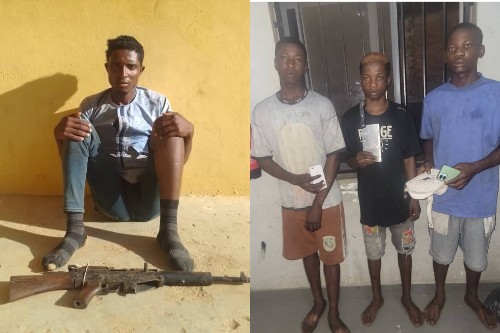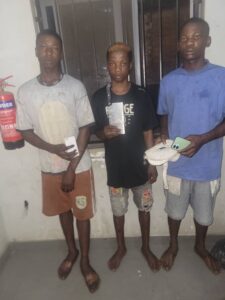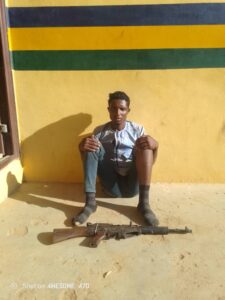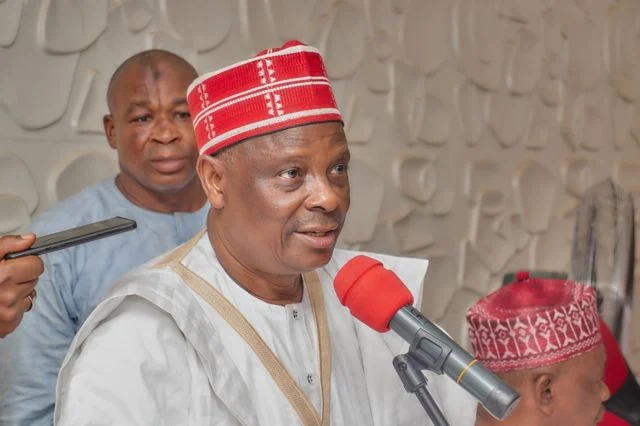In a rush to beat the 21 days deadline provided by the Electoral Act, lawyers to the presidential candidate of the Peoples Democratic Party, PDP, Alhaji Atiku Abubakar, on Monday evening, stormed the tribunal to lodge a petition against President Muhammadu Buhari.
The Independent National Electoral Commission had on February 27, declared President Buhari who was the flag-bearer of the All Progressives Congress, APC, winner of the presidential election.
Under section 134 of the Electoral Act, 2010, any candidate that was dissatisfied with the outcome of the presidential contest, was mandated to approach the tribunal with a petition, not later than 21 days after the result was announced, a deadline that will expire on Tuesday.
While the tribunal must deliver its judgment in writing within 180 days from the date the petition was filed. As at the time of filing this report, 7:50pm, Atiku’s team of lawyers led by Mr. Chukwuma Machukwu Ume, SAN, Chief Mike Ozekhome, SAN, and Mr. Emeka Etiaba, SAN, are perfecting the filing process at the Central Registry of the Presidential Election Petition Tribunal, PEPT.
The tribunal will be conducting its proceedings at the Court of Appeal headquarters in Abuja.
Though Atiku had yet to arrive at the tribunal where he is expected to personally depose to an affidavit, however, some chieftains of the PDP, including its spokesman, Mr. Kola Ologbodiyan and Alhaji Buba Galadima, accompanied the lawyers to the tribunal. Addressing newsmen, National Legal Adviser of the PDP, Mr. Emmanuel Enoidem, revealed that Atiku would be seeking two principal reliefs at the tribunal.
He said the first relief was for an order declaring him as the bona-fide winner of the 2019 presidential election.
In the alternative, Atiku and the PDP, are urging the tribunal to nullify the February 23 presidential election on the premise that it was marred by irregularities.
“We asked that our candidate who won the election massively across the country be declared the winner.
“In the alternative, we also asked that the election be set aside on the ground of irregularity which was apparent across the country.
“We have a pool of 20 SANs who are tested in election petition matters and other senior lawyers who are also working with them. So we are confident.
“We have also lined up more than 400 witnesses that are going to testify in this petition.
“Nigerians are at home with what happened on February 23, the sham they called election. We are going to re-present those facts to Nigerians, we are not going to manufacture facts”, he added.
Similarly, a member of the legal team, Chief Ozekhome, SAN, told journalists that the petitioners encountered serious challenges in the hands of INEC which is said was reluctant to grant them access to the electoral materials.
“Our petition is quite solid, very strong and unassailable. We believe that by the grace of God, the original winner will regain his mandate”, Ozekhome added.
It will be recalled that the tribunal had on March 6, ordered INEC to grant Atiku and PDP access to all the electoral materials that were used for the presidential poll.
The tribunal however declined to allow Atiku and PDP to conduct forensic analysis on any of the electoral materials on the premise that such request was outside the scope of the Electoral Act, as amended.
Justice Abdul Aboki who delivered the lead ruling of the tribunal, held that Atiku’s request for experts to be permitted to conduct forensic audit on the materials, could not be regarded as “inspection” that was allowed in section 151 of the Electoral Act.
He held that a decided case-law in Hope Uzodinma Vs Osita Izunaso, which Atiku and the PDP relied upon to make the application, wherein a tribunal ordered INEC to allow the petitioner to scan and conduct forensic audit on all the election materials, had since been set-aside by the Court of Appeal.
Nevertheless, the tribunal directed INEC to allow the Applicants access to the ballot papers and voters register.
Specifically, Atiku and his party, told the tribunal that the essence of the request was to establish that the presidential election was fraught with manifest irregularities they said included multiple thumbprinting of ballot papers. They indicated their determination to engage forensic experts to scritinze all materials that INEC deployed for the election.
In a counter-move, President Buhari and the APC, on March 14, also approached the tribunal and secured an order for INEC to equally grant them access to all the electoral materials.
The Tribunal, in two separate rulings, ordered the electoral body to forthwith, make available to President Buhari and the APC, both used and unused ballot papers it deployed across the 36 states of the federation and the Federal Capital Territory, for the purpose of the presidential poll. Among other documents the tribunal granted the Applicants leave to inspect included all the voters registers.
It held that the Applicants should also be allowed to obtain Certified True Copies of all the documents that were used at the polling units, wards, local governments and state levels.
The tribunal said it was inclined to grant the request pursuant to section 6(6) (a) (b) of the 1999 Constitution, section 137(2) and 151(1) and (2) of the Electoral Act and 47(1) of the Third Schedule to Electoral Act.
President Buhari and the APC had through their lawyers, Adelani Ajibade and Thomas Ojo, prayed the tribunal to order INEC to release the materials to enable them to prepare their defence to a petition the presidential candidate of the Peoples Democratic Party, PDP, Alhaji Atiku Abubakar intends to lodge against the outcome of the presidential poll.

 BIG STORY4 days ago
BIG STORY4 days ago
 BIG STORY3 days ago
BIG STORY3 days ago
 BIG STORY4 days ago
BIG STORY4 days ago
 BIG STORY4 days ago
BIG STORY4 days ago
 BIG STORY5 days ago
BIG STORY5 days ago
 BIG STORY4 days ago
BIG STORY4 days ago
 BIG STORY1 day ago
BIG STORY1 day ago
 BIG STORY5 days ago
BIG STORY5 days ago


























